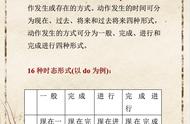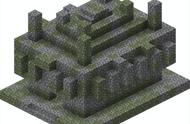
语法梳理:王兴刚老师
适合人群:英语教师、英语专业学生、初高中生等
我不止一次收到同学们的这个提问,很显然这是一个易混知识点。
从专业的角度来说,同学们的提问虽然有瑕疵,但是动脑思考本身就值得表扬。
同学们说的被动语态有be动词,是这样的:
English is spoken by lots of people in the world.
同学们说的被动语态没有be动词,是这样的:
I love the gift given by my friend Tom.
所以你看,的确是有的被动语态有be,比如is spoken;而有的被动语态没有be,比如given。
以上是对学生问题的回顾与分析,以下是回复与解答。
正式解答
直截了当点,先说答案:
- 被动语态必须有be动词,无论是be动词的什么时态,都必须有be。这个是底线和原则,不能动摇。
- 没有be动词的不是被动语态,而是在句子成分中,充当被动的逻辑关系。是被动关系,而不是被动语态。常见于后置定语,补语,状语三种成分中。至于其他的前置定语、表语、宾语等也有表示被动的,但一般不构成困惑。
一、先来梳理一下被动语态
Be done这是经典的被动语态的格式。因为英语中有16种时态,所以理论上也有16种被动语态。即:每一种时态都对应着一个主动语态和一个被动语态。
看例句:
1.一般现在时的被动语态(am/ is/ are done)
English is spoken by lots of people in the world. 世界上的许多人都说英语。
2.一般过去时的被动语态(was/ were done)
My bike was stolen. 我的自行车被偷了。
3.一般将来时的被动语态(will/ shall be done)
A new road will be built next year. 明年要修一条新马路。
4.现在进行时的被动语态(am/ is/ are being done)
The machine was being repaired at this time yesterday. 昨天这时,机器正在被修理。
5.过去进行时的被动语态( was/ were being done)
The machine was being repaired at this time yesterday. 昨天这时,机器正在被修理。
6.将来进行时的被动语态( will be being done)
The car will be being repaired at this time tomorrow. 明天的这个时候,这辆车将会正在被修理。
7.现在完成时的被动语态(have/ has been done)
Two hundred trees have been planted by now. 到现在为止,已经种了二百棵树了。
8.过去完成时的被动语态(had been done)
She found the house had been destroyed by the storm. 她发现房子已被暴风雨摧毁。
9.将来完成时的被动语态(will have been done)
By the end of this year,1000 books will have been read by me.
其他时态的例句应用的地方很少,就不做举例了。
10. 含有情态动词的被动语态,举例如下:
Tables can be made of stone.桌子可由石头制造。

二、再来梳理一下被动关系
1、过去分词短语做后置定语
- The machine invented by the scientists works very well.
- The Great Wall of China built in the Qing Dynasty attracts many visitors every year.
- The keys left in the car belong to the cute boy.
- The trees blown down have blocked the road to the clinic.
- The headmaster showed the students some old maps borrowed from the library.
以上这些例句都是后置定语,其实都是从定语从句转化来的。转化的规则,如果大家感兴趣,可以看这里:
定语从句与非谓语动词转化
转化条件
定语从句的关系代词(不包括关系副词),在定语从句中做主语(做宾语不能转化)。
转化步骤
(1)将定语从句中的先行词去掉
(2)定语从句中的动词有主动或被动两种形式。
如果动词与先行词是主动关系,那么把动词改成doing。Noun that V= Noun doing
如果动词与先行词是被动关系,那么把系动词去掉,剩done。Noun that V= noun done
转化例句
(1)The machine invented by the scientists works very well.
= The machine which was invented by the scientists works very well.
(2)The Great Wall of China built in the Qing Dynasty attracts many visitors every year.
= The Great Wall of China which was built in the Qing Dynasty attracts many visitors every year.
(3)The keys left in the car belong to the cute boy.
=The keys which were left in the car belong to the cute boy.
(4)The trees blown down have blocked the road to the clinic.
= The trees which were blown down have blocked the road to the clinic.
(5)The headmaster showed the students some old maps borrowed from the library.
= The headmaster showed the students some old maps which were borrowed from the library.
2、过去分词做补足语
- He saw his face reflected in the water.
- His face was seen reflected in the water.
- With the trees cut down, the environment in this area couldn't be worse now.
- Unfortunately, the man was found buried in the sand.
- For a start, Clarie had to have her luggage checked.
以上例句都是过去分词作补足语的用法,补足语又分为主语补足语和宾语补足语。英语中大多数都是宾语补足语,如果能了解和识别宾语补足语,基本就够了。
3、过去分词做状语
- Though trapped in the ruins, the girl still wore a smile, waiting to be rescued.
- Clearly and thoughtfully written, the book inspires confidence in students who wish to seek their own answers.
- Admired for its natural beauty, Guilin is regarded as a fairyland of colours.
- Compared with other forms of writing, it is shorter and takes less time.
- Given another chance, he will do better next time.
以上例句都是过去分词做状语,至于具体是什么状语,需要根据句义去分析。大部分都是原因状语、让步状语、条件状语和时间状语。过去分词做状语其实都是由状语从句转化来的。转化的规则,如果大家感兴趣,可以看这里:
状语从句与非谓语动词转化
省略条件
①状语从句;
②状语从句的主语与主句的主语是同一个。
省略步骤
将状语从句的主语去掉。
状语从句的谓语动词如果是主动的,则改成doing;如果是被动的,则去掉系动词,留下done。
可以将状语从句的连接词也去掉。
转化例句
(1)Though trapped in the ruins, the girl still wore a smile, waiting to be rescued.
= Though she was trapped in the ruins, the girl still wore a smile, waiting to be rescued.
(2)Clearly and thoughtfully written, the book inspires confidence in students who wish to seek their own answers.
= Because the book is clearly and thoughtfully written, the book inspires confidence in students who wish to seek their own answers.
(3)Admired for its natural beauty, Guilin is regarded as a fairyland of colours.
= Because Guilin is admired for its natural beauty, Guilin is regarded as a fairyland of colours.
(4)Compared with other forms of writing, it is shorter and takes less time.
= When it is compared with other forms of writing, it is shorter and takes less time.
(5)Given another chance, he will do better next time.
= If he is given another chance, he will do better next time.

老师讲完了,你是学会了,还是学废了呢?
(完)
作者:王兴刚老师(公众号|头条号|抖音号:王老师英语教学),英语教师,从事教学16年。本号日常推文主要包括:初高中英语知识的梳理和剖析,中高考英语考点的讲解与总结。推文主要面向中高考学生,每日分享学生们能够实实在在用得到的英语知识,特别适合双减后能够独立学习的初高中生!
,














